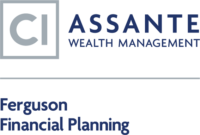Strengthen Your Financial Literacy Upon Retirement
Wealth planning doesn’t retire when you do, it just changes. Now financial life is largely about making the most of the wealth you’ve accumulated. You’ll be learning about new rules, products and strategies that involve a broad range of financial considerations.
Fortunately, your expanding financial literacy doesn’t have to happen all at once. You can acquire new knowledge gradually as needs arise.
From accumulation to decumulation
When you have retirement savings in your Registered Retirement Savings Plan (RRSP) or Registered Retirement Income Fund (RRIF), Tax-Free Savings Account (TFSA) and non-registered account, how do you know which source to tap first for income?
You’ll learn that there’s no formula to follow. It depends on each retiree’s particular tax situation, government benefits strategy and estate planning goals. We’ll work with you to develop a plan that suits your circumstances. This may be a balancing act in which you draw varying amounts from multiple sources.
Along the way, you’ll also learn about splitting pension income, making RRIF withdrawals strategically and ensuring you don’t outlive your savings.
Planning your estate
Although estate planning typically begins in your working years, new factors often arise during retirement.
Controlling an inheritance
If you have reason to control how an heir receives their inheritance, you’ll want to know about trusts. Situations include being in a second marriage and wanting to leave an inheritance to children from your first marriage, having minor beneficiaries, and preferring that an heir receives funds over time instead of in a lump sum.
Covering tax
You’ll learn about ways to minimize the tax on your estate’s assets. Examples include gifting certain assets now to limit their appreciation, or transferring assets to your spouse upon your passing. You’ll develop a plan to cover the tax liability that is ultimately payable by your estate.
Using life insurance
One way to offset the tax on estate assets is through a permanent life insurance policy. Life insurance can also help equalize inheritances. For example, when one child takes over the family business and the other child receives insurance proceeds. With life insurance, the financial need is taken care of as soon as you pay the first premium. Proceeds are received tax-free, but the cost of the premiums must be weighed against other funding solutions.
Repurposing your TFSA
In retirement, your TFSA could become a tax-free environment for any funds from your minimum required RRIF withdrawals, that you don’t require as retirement income. You can take advantage of the tax-free nature of TFSA withdrawals in several ways. For instance, minimizing any claw back of Old Age Security (OAS) benefits or preventing your income level from being pushed into the next tax bracket. You’ll also find out about different ways TFSA assets can be used in estate planning. They can help manage taxes on your estate’s assets or to leave as an inheritance.
Investment changes
When you’ve been investing for decades, there’s not a lot that’s left to learn. However, you may be introduced to several products and strategies designed for the retirement years. For example, you can choose new non-registered investment funds that provide tax-efficient monthly income. To safeguard against withdrawing funds when the market is down, some retirees draw their income from a cash reserve that they replenish periodically.
We can help
We work with business professionals, executives, and families to grow and protect their wealth using our Wealth Plan formula. To discuss our approach and if it is the right fit for you, we invite you to schedule a no-obligation discovery consultation.

